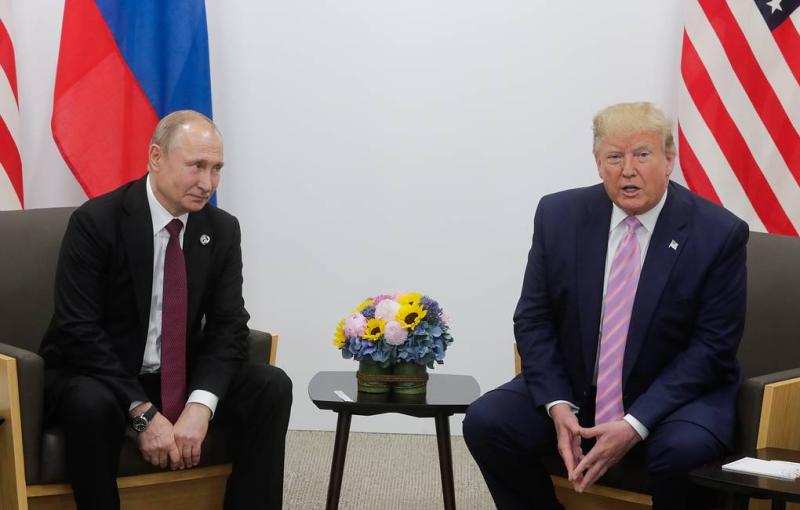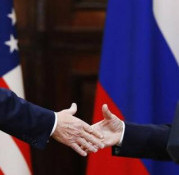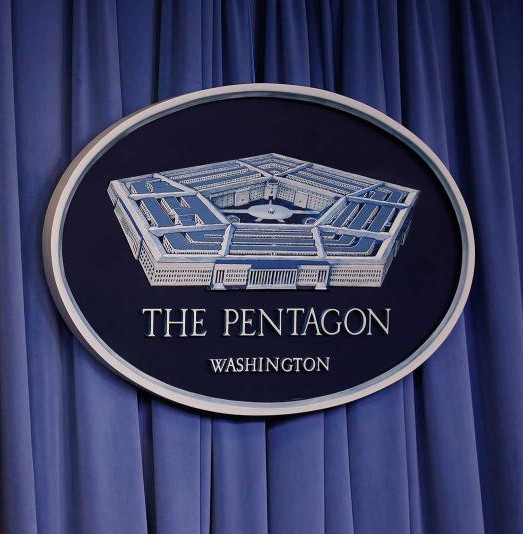
On February 18, the delegations of Russia and the United States held bilateral talks in Riyadh, the capital of Saudi Arabia. The parties agreed to restore normal functioning of each other's diplomatic missions in Moscow and Washington. US President Donald Trump said the negotiations made him more confident in achievability of peace in Ukraine.
Russia was represented by Foreign Minister Sergey Lavrov and Presidential aide Yuri Ushakov, accompanied by Russian Direct Investment Fund chief Kirill Dmitriyev.
Secretary of State Marco Rubio, National Security Advisor Mike Waltz, and Special Envoy to the Middle East took part in the meeting as part of the American delegation.
The parties discussed restoration of the entire complex of Russian-American relations, preparations for a meeting between national leaders Vladimir Putin and Donald Trump, and potential settlement talks for Ukraine.
Ushakov said the delegations had a "very serious conversation on all issues." However, it is still hard to say that US and Russian positions are getting somewhat closer. The presidential aide also noted that the parties had agreed to "take due regard of each other's interests." According to him, they cannot name a specific date for a Putin-Trump meeting, it will "unlikely" take place next week. And it is not yet clear who would be appointed negotiators on Ukrainian settlement, as the decision is up to the president, he added.
Lavrov called the conversation with the American side useful, noting that the parties started listening to and hearing each other. The United States has become more aware of the Russian stance, the Foreign Minister said, and both countries agreed to ensure a swift appointment of ambassadors in Washington and Moscow. Also, they nearly came to an arrangement to resolve issues with functioning of each other’s diplomatic missions "once and for all". Russia and the United States are interested in restoring geopolitical consultations and removing obstacles to economic cooperation. Moscow and Washington will seek to create conditions for resuming full-scale cooperation, the FM added. Russia has felt US determination to "move forward" and is disposed to do the same.
US President Donald Trump called the Russian-American talks in Riyadh “very good,” saying that his confidence in Ukraine settlement was growing higher.
He was asked to dwell upon the meeting in Saudi Arabia and whether he had more or less confidence in a deal to resolve the Ukrainian crisis following negotiations. "[I am] much more confident. They [the negotiations] were very good," he told reporters after signing a number of new decrees. The ceremony took place at his Mar-a-Lago residence outside West Palm Beach, Florida.
"Russia wants to do something. They want to stop the savage barbarianism," Trump added. He compared the tragedy of war in Ukraine to the 1863Battle of Gettysburg, the bloodiest one in the entire American Civil War.
Leading Research Fellow at the Russian Academy of Sciences’ Institute of USA and Canada Vladimir Batyuk notes that "the meeting was generally successful, judging by assessments of both the Russian and American delegations. There was meaningful talk in a fairly constructive atmosphere. Of course, it would be unrealistic to expect fateful breakthroughs, but a start has been made towards a constructive and hopefully beneficial Russian-American dialogue."
In turn, Anton Grishanov, chief researcher at the Institute of Current International Problems at the Russian Foreign Ministry’s Diplomatic Academy, agrees "with the assessment by Minister Lavrov that the dialogue is truly vital, and its revival is a certainly positive thing. Moreover, specific agreements have been reached, primarily one on unblocking the work of each other’s embassies and restoring the number of diplomatic staff there. I think the rest will be discussed at the upcoming meetings. But the return to exchanging views is important itself as there has been lack of it for several years."
Assessing the prospects of Russian-American relations as a whole, Vladimir Batyuk notes that "someone may feel euphoria over dialogue resumption, which is generally understandable if we recall what happened in American-Russian relations under the previous administration, when there was no dialogue at all. We are now seeing a shift in the right direction, but this has only been the first step. Therefore, high expectations are generally irrelevant right now, but it is clear anyway that both sides have an interest in dialogue progress, and this makes us hopeful that success is achievable under certain conditions."
On the same topic, Anton Grishanov points out that "Russian participants in the negotiations have been realistic about their prospects, as implied in their statements. The same applies to President Vladimir Putin, who has repeatedly made it clear that negotiations and dialogue are a long process with many unknowns. Still less the United States will have a different administration in four years. But in any case, we are building on the existing experience of dialogue with Washington, including Trump’s first administration. A normal diplomatic process has resumed, particularly an agreement reached on creating negotiator groups to interact on a regular basis. Therefore, it is certainly key that the parties have started talking diplomacy, which may yield certain results like Ukraine war settlement. And still, it is too early to revolve around any specifics other than restoring diplomatic staff at embassies. We do see a more serious attitude towards constructiveness, and opponents of this course in the United States have somewhat turned their voices down low, which provides for a window of opportunity."


